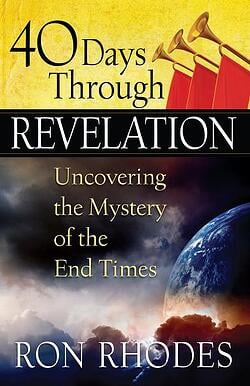
As the closing passage of the Bible, the book of Revelation is both intriguing and significant, containing topics and themes that shouldn’t be neglected. When it comes to understanding Revelation, scholars throughout the ages have taken four primary interpretive approaches.
1. The historicist view. This approach to Revelation holds that the book supplies a prophetic panorama of church history from the first century to the second coming of Christ. This approach emerged in the fourth century when some interpreters saw parallels between current events and biblical prophecy. Later, Joachim of Fiore (AD 1135–1202) developed the approach by dividing history into three ages.
But a comparison of Revelation with other prophetic Scriptures (for example, Daniel 9:25-27; Matthew 24–25; 2 Thessalonians 2:1-12; Titus 2:13-14) reveals that these prophecies point to the future.
2. The idealist view. This view holds that the book of Revelation is primarily a symbolic description of the ongoing battle between God and the devil, between good and evil. However, it is hard to see how the idealist approach to Revelation could bring any genuine comfort to the original recipients of the book, who were undergoing great persecution.
Moreover, this view ignores specific time markers within the book. For example, it refers to 42 months in Revelation 11:2 and 1260 days in Revelation 12:6. Further, the many symbols in the book of Revelation point to real people and real events in the future tribulation period.
3. The preterist view. This approach holds that the prophecies of Revelation were fulfilled in AD 70 when Titus and his Roman army overran Jerusalem and destroyed the Jewish temple. So in this scheme, the book of Revelation does not deal with the future.
A primary problem with this view is that Revelation claims to be prophecy (see Revelation 1:3; 22:7,10,18-19). Further, multiple events described in Revelation bear no resemblance to the events of AD 70. For example, a third of mankind was not killed, as is predicted in Revelation 9:18.
Moreover, substantive evidence indicates that the book of Revelation was written about AD 95, long after the destruction of Jerusalem.
4. The futurist view. The futurist approach to interpreting the book of Revelation holds that most of the events described in the book will take place in the end times, just prior to the second coming of Jesus Christ. This view honors the book’s claim to be prophecy. It also recognizes that just as the Old Testament prophecies of the first coming of Christ were fulfilled literally (more than 100 of them!), so the prophecies of the second coming and the events that will lead up to it will be fulfilled literally.
* * *
The book of Revelation is the only book in the Bible that promises a special blessing to those who read it and obey its message (Revelation 1:3; 22:7). So be encouraged!
Excerpted from 40 Days Through Revelation



